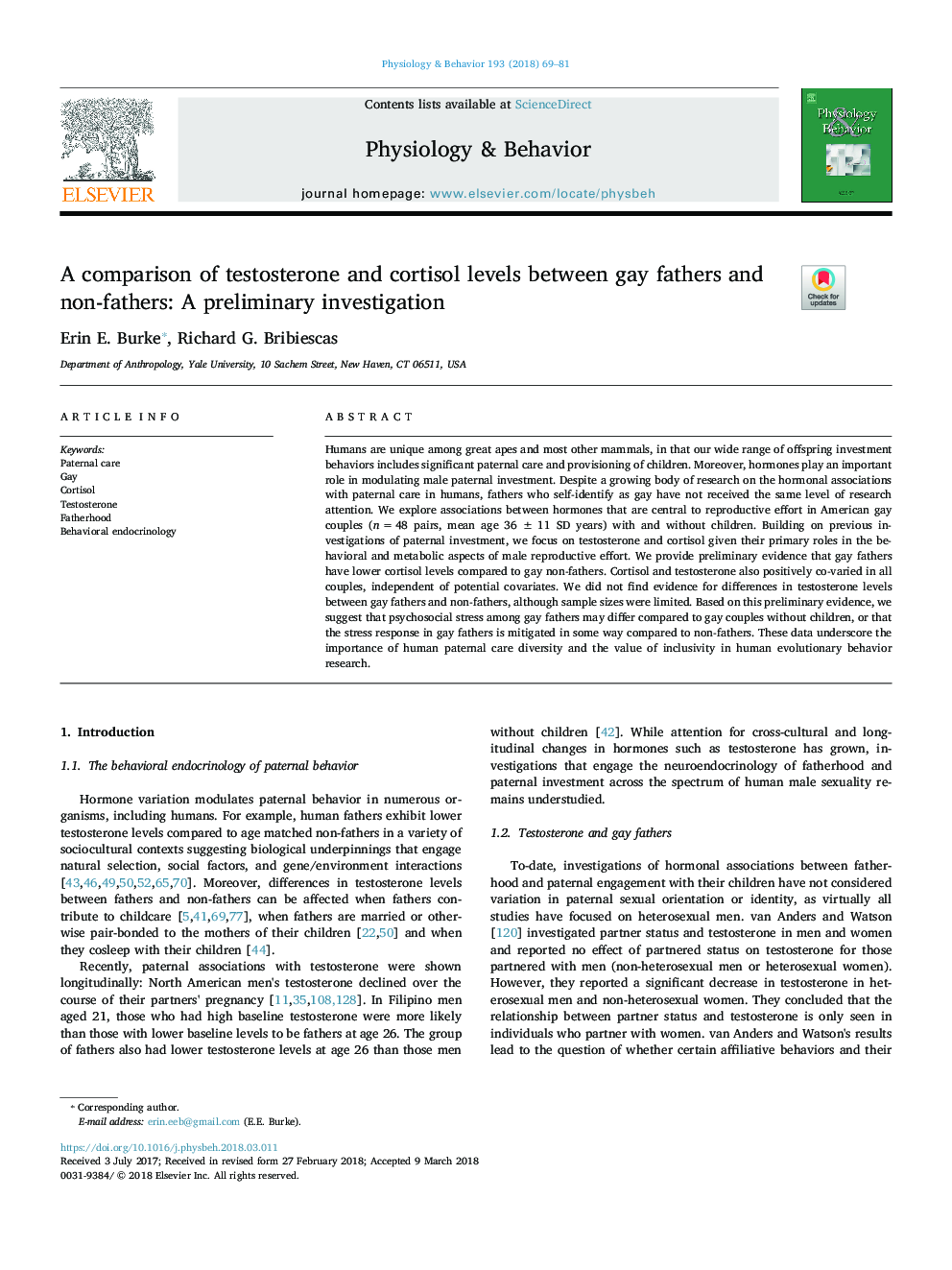| Article ID | Journal | Published Year | Pages | File Type |
|---|---|---|---|---|
| 8650417 | Physiology & Behavior | 2018 | 13 Pages |
Abstract
Humans are unique among great apes and most other mammals, in that our wide range of offspring investment behaviors includes significant paternal care and provisioning of children. Moreover, hormones play an important role in modulating male paternal investment. Despite a growing body of research on the hormonal associations with paternal care in humans, fathers who self-identify as gay have not received the same level of research attention. We explore associations between hormones that are central to reproductive effort in American gay couples (nâ¯=â¯48 pairs, mean age 36â¯Â±â¯11 SD years) with and without children. Building on previous investigations of paternal investment, we focus on testosterone and cortisol given their primary roles in the behavioral and metabolic aspects of male reproductive effort. We provide preliminary evidence that gay fathers have lower cortisol levels compared to gay non-fathers. Cortisol and testosterone also positively co-varied in all couples, independent of potential covariates. We did not find evidence for differences in testosterone levels between gay fathers and non-fathers, although sample sizes were limited. Based on this preliminary evidence, we suggest that psychosocial stress among gay fathers may differ compared to gay couples without children, or that the stress response in gay fathers is mitigated in some way compared to non-fathers. These data underscore the importance of human paternal care diversity and the value of inclusivity in human evolutionary behavior research.
Related Topics
Life Sciences
Biochemistry, Genetics and Molecular Biology
Physiology
Authors
Erin E. Burke, Richard G. Bribiescas,
